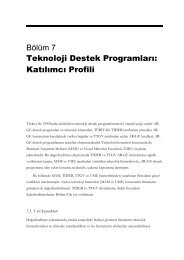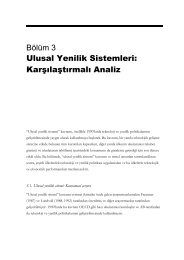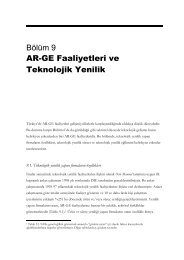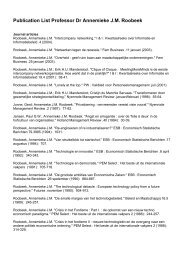The Australian Government's Innovation Report
The Australian Government's Innovation Report
The Australian Government's Innovation Report
Create successful ePaper yourself
Turn your PDF publications into a flip-book with our unique Google optimized e-Paper software.
<strong>The</strong> institute’s main laboratory is located at Cape Ferguson, 50 kilometres from Townsville, and includes<br />
purpose-built laboratories for biotechnology, organic chemistry, geochemistry, biochemistry, molecular genetics,<br />
analytical chemistry, as well as multi-use laboratories for the support of ecological tasks. Support laboratories<br />
in Fremantle and Darwin supplement research undertaken at the main facility. Two AIMS research vessels, the<br />
Cape Ferguson and Lady Basten, support access to tropical waters off Queensland, the Northern Territory and<br />
Western Australia. A fleet of smaller vessels supports fieldwork near and offshore.<br />
AIMS is committed to the sustainable use and protection of Australia’s marine resources. Its research<br />
programmes support the management of tropical marine environments around the globe with a primary focus<br />
on the Great Barrier Reef World Heritage Area and Ningaloo Marine Park in Western Australia. Reef tourism,<br />
offshore oil and gas, fisheries, mining and aquaculture industries have all benefited from AIMS research that<br />
is geared towards the sustainable development of key marine industries. <strong>The</strong>se benefits will extend into the future<br />
and underwrite new areas of the economy such as the emerging environmental biotechnology industry.<br />
AIMS continued to enhance understanding of Australia’s marine environment during the year. Major outcomes<br />
and achievements included:<br />
• surveys to measure the effect of reef closures on the Great Barrier Reef, which showed that coral trout,<br />
the most important fish taken from the park by commercial and recreational fisheries, had increased in<br />
abundance by an average of 150% across all regions on reefs closed to fishing by rezoning. As these<br />
additional fish mature, their extra spawn is expected to enhance the replenishment of coral trout<br />
populations on nearby reefs that remain open to fishing, potentially offsetting the loss of fishable areas;<br />
• collaborative research to domesticate the tropical rock lobster, panulirus ornatus,which has taken a<br />
significant step forward with successful rearing of larval lobsters through to the penultimate moult;<br />
• a pilot sponge farm at Masig Island in the Torres Strait. Local divers have reported sponge cuttings<br />
doubling in size over six months when suspended in mesh panels. Scientists have worked out the best<br />
size for such cuttings and have shown that natural sponges can survive and regenerate their mass even<br />
after 70% of their tissue has been removed. Due to the capacity of the sponge to be propagated from<br />
cuttings, there should be little or no need to harvest wild sponges once cultured stocks are abundant;<br />
and<br />
• refining of baited remote underwater video stations as a method for sampling fish in places where divers<br />
cannot go. <strong>The</strong>se tools have been applied and validated in diverse sampling projects, which has generated<br />
considerable interest from other scientists and potential clients.<br />
Collaborations with national and overseas partners add significant value to AIMS research outputs and<br />
outcomes. In the past 12 months, 79% of AIMS journal publications were co-authored with researchers from<br />
other institutions and 47% were co-authored with researchers from overseas organisations. AIMS also collaborated<br />
with 87 organisations nationally and organisations from 18 countries.<br />
More information about AIMS and its programmes and activities can be found at:<br />
www.aims.gov.au<br />
Chapter 2 - Initiatives for a dynamic national innovation system 27


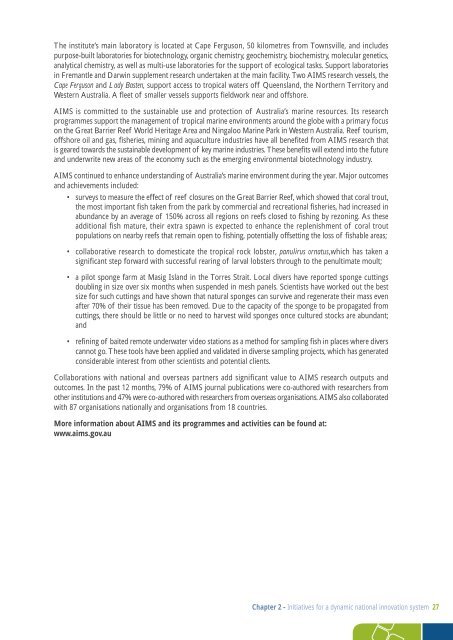
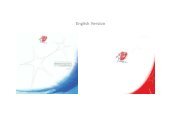
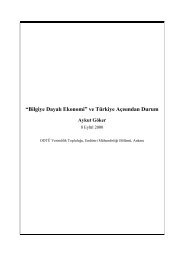
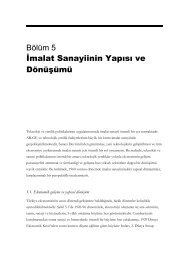
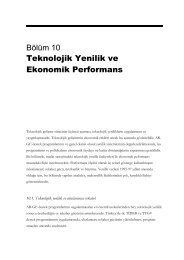

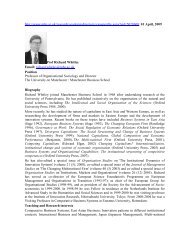

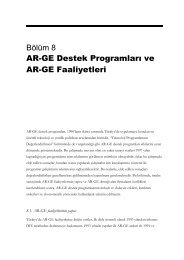
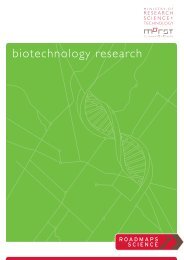
![[Tam] Uygula[ya] - Bilim, Teknoloji ve Ä°novasyon Politikaları TartıÅma ...](https://img.yumpu.com/36820041/1/184x260/tam-uygulaya-bilim-teknoloji-ve-anovasyon-politikalara-tartaama-.jpg?quality=85)
